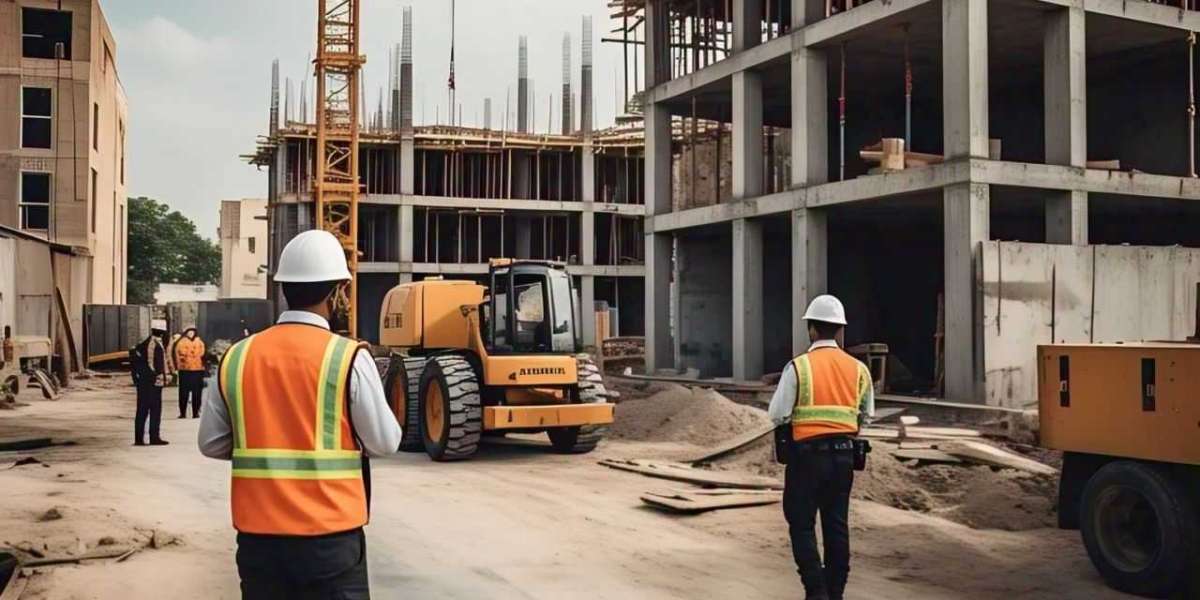The Critical Role of Security Guards in Ensuring Construction Site Safety
Introduction
Construction sites are often vulnerable to security risks, including theft, vandalism, and unauthorized access. Without proper security measures, these risks can lead to financial losses and project delays. Security guards play a crucial role in ensuring construction site safety by preventing potential threats and maintaining order. Their presence provides protection not only for workers but also for equipment and materials. This article explores how security guards contribute to construction site safety and why their role is indispensable.
1. Why Security is Essential at Construction Sites
Construction sites house expensive machinery, raw materials, and tools, making them prime targets for thieves and vandals. Additionally, the presence of workers and contractors increases the need for strict safety protocols. Without security personnel, these sites remain vulnerable to multiple risks, affecting project timelines and budgets.
2. The Primary Duties of Security Guards at Construction Sites
Security guards are responsible for maintaining a safe and secure environment. Their key duties include:
- Monitoring the site for suspicious activities
- Controlling access to prevent unauthorized entry
- Responding to emergencies and security breaches
- Ensuring compliance with safety regulations
These tasks help create a secure working environment, allowing workers to focus on their jobs without concerns about theft or safety hazards.
3. Preventing Theft and Vandalism
Construction sites often experience theft of tools, equipment, and raw materials, leading to financial losses. Security guards act as a deterrent, preventing unauthorized individuals from accessing the site. Their presence alone can discourage criminals, and in case of incidents, they can quickly respond to minimize losses.
4. Controlling Site Access
Unauthorized individuals entering a construction site can pose a serious risk. Security guards manage access points by verifying identities and ensuring only authorized personnel enter. This control helps prevent accidents, theft, and potential legal issues.
5. Ensuring Worker and Public Safety
Apart from preventing crimes, security guards also play a role in worker and public safety. They monitor compliance with safety protocols, ensuring workers wear protective gear and follow guidelines. Additionally, they help manage traffic around the construction site to prevent accidents involving pedestrians and vehicles.
6. Handling Emergency Situations
Construction sites are prone to emergencies such as fires, accidents, and medical incidents. Security guards are trained to handle these situations by providing first aid, evacuating workers, and contacting emergency services. Their swift response can help prevent injuries and minimize damage.
7. Monitoring Surveillance Systems
Many construction sites use CCTV cameras to monitor activities. Security guards oversee these surveillance systems to detect suspicious behavior in real time. This allows them to take immediate action if they notice any security threats.
8. Preventing Workplace Conflicts and Disputes
Conflicts among workers can disrupt productivity and create an unsafe work environment. Security guards help resolve disputes professionally, ensuring a peaceful and organized workplace. Their presence can also prevent incidents of workplace violence.
9. Patrolling the Site for Maximum Security
Regular patrolling is one of the most effective ways to maintain site security. Security guards conduct routine patrols to check for security breaches, ensure compliance with safety standards, and identify potential hazards. This proactive approach helps prevent incidents before they occur.
10. Enhancing Site Security with Professional Services
Hiring professional security services ensures that construction sites remain protected at all times. Trained security personnel use advanced strategies to minimize risks and maintain order. For reliable security solutions, many companies turn to specialized security providers to safeguard their construction sites effectively.
11. The Cost of Inadequate Security
Neglecting security at a construction site can lead to serious consequences, including:
- Financial losses from stolen materials and equipment
- Legal liabilities due to workplace accidents
- Project delays caused by vandalism and theft
Investing in professional security services is essential to avoid these risks and ensure smooth project completion.
12. Conclusion: The Indispensable Role of Security Guards
Security guards are an essential part of construction site management. They help prevent theft, ensure worker safety, handle emergencies, and maintain order. By investing in professional security services, construction companies can protect their assets, reduce risks, and ensure a safer work environment.
For comprehensive security solutions, many companies trust professional security services to safeguard their construction sites efficiently.
FAQs
1. Why do construction sites need security guards?
Construction sites are vulnerable to theft, vandalism, and unauthorized access. Security guards help prevent these risks and ensure worker safety.
2. How do security guards prevent theft on construction sites?
They control access, monitor surveillance cameras, conduct regular patrols, and respond quickly to suspicious activities.
3. What should I look for in a construction site security service?
Choose a service that offers trained personnel, surveillance monitoring, emergency response capabilities, and 24/7 site protection.
4. Can security guards help with workplace safety compliance?
Yes, they ensure workers follow safety protocols, wear protective gear, and adhere to site regulations.
5. What happens if there’s an emergency on-site?
Security guards handle emergencies by providing first aid, evacuating workers, and contacting emergency services.
6. Are security services cost-effective for construction sites?
Yes, investing in security services helps prevent financial losses, project delays, and legal issues caused by security breaches.








